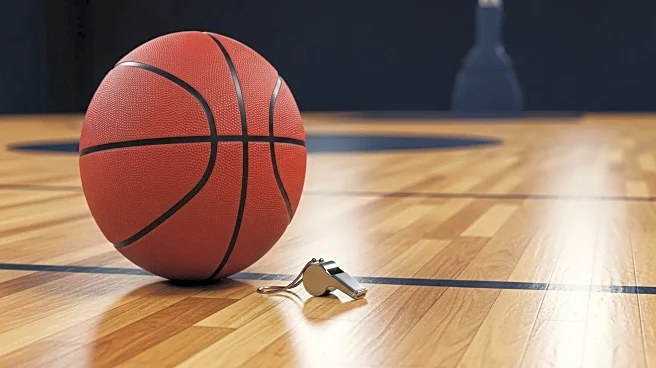What's Happening?
WNBA legend Candace Parker has voiced her concerns about the current state of refereeing in the WNBA, suggesting that improvements are necessary to enhance the quality of officiating. During a recent episode of her podcast, Parker discussed the frustrations players experience with referees, particularly when calls are inconsistent or when referees fail to acknowledge their mistakes. She emphasized the importance of training and accountability, drawing a comparison to the NBA's comprehensive referee training program. Despite the close relationship between the WNBA and the NBA, Parker noted that the NBA has not yet extended its training resources to WNBA referees. Parker believes that investing in referee training could lead to more consistent and fair officiating in the league.
Why It's Important?
The quality of refereeing in sports can significantly impact the fairness and enjoyment of the game for players and fans alike. In the WNBA, inconsistent officiating has been a point of contention, affecting the league's credibility and the players' performance. By advocating for better training and accountability, Parker highlights a critical area for improvement that could enhance the overall quality of the league. If the WNBA were to adopt a training program similar to the NBA's, it could lead to more consistent officiating, which would benefit players, coaches, and fans. This move could also strengthen the league's reputation and potentially attract more viewers and sponsors, contributing to its growth and success.
What's Next?
The next steps could involve discussions between WNBA officials and the NBA to explore the possibility of integrating WNBA referees into the NBA's training program. This collaboration could require financial investment and strategic planning to ensure that the training is tailored to the specific needs of the WNBA. Additionally, the league might consider implementing new guidelines and accountability measures to ensure referees maintain high standards during games. Stakeholders, including players, coaches, and league officials, may engage in dialogue to push for these changes, potentially leading to policy adjustments in the near future.









